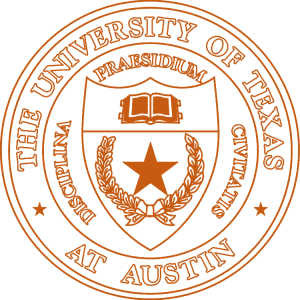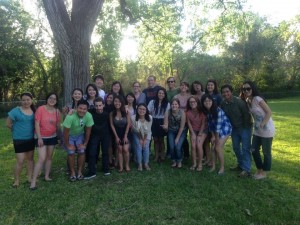 Despite having arrived in Texas only one year ago, I have been paying attention to the controversy surrounding the university’s President, Bill Powers, for some time. It has made national news and recently culminated in his announcement of resignation in 2015. The issue has many facets, not least of which is what the fundamental purpose of the university should be. The University of Texas is a world-class research institution and the flagship university of the state of Texas, but some argue that increasing tuition costs are cheating students out of a low-cost education.
Despite having arrived in Texas only one year ago, I have been paying attention to the controversy surrounding the university’s President, Bill Powers, for some time. It has made national news and recently culminated in his announcement of resignation in 2015. The issue has many facets, not least of which is what the fundamental purpose of the university should be. The University of Texas is a world-class research institution and the flagship university of the state of Texas, but some argue that increasing tuition costs are cheating students out of a low-cost education.
Sure, if we could have it both ways we would provide every student with a top education for pennies. The fact is that tuition costs are soaring everywhere, not just UT, and declining state funding is part of the cause for the increase. Another reason commonly cited, again not just at UT, is the increasing administrative burden on university budgets. That said, the idea that college education should be cheaper to make it more accessible to students sounds like a positive notion on its face, but the side-effects could result in consequences antithetical to the stated goals of its proponents.
The Board of Regents has accused UT of wasting too much money on “ivory tower research” that does not result in much benefit to the public or students. The solution? Force professors to teach more classes and do less research so that fewer professors would be required to be on the payroll. Some unfortunate side-effects of that policy would be that the best professors would leave for other universities that do allow for research opportunities, leaving students with fewer professors that have extensive knowledge of current research in their fields. This is not to say that professors who do not engage in research are inferior, but an important part of a college education, particularly in technical fields, is learning about the forefront of progress. Another side effect would be found in rankings, which are dependent in part on the volume and quality of research. UT has numerous highly-ranked programs that would suffer in several ways. This would also result in employers of UT graduates that frequently recruit here because of the prestige of the academic programs becoming less inclined to do so.
Additionally, many of those students who come from out of state (or out of country, for that matter) would cease to come to Texas if not for the prestige and opportunity offered here. These are the students who pay the most in tuition, and whose absence would be well-noticed on UT’s “bottom line.” The brain-gain that Texas enjoys from these students coming from all over the world ripples through the state’s economy as they graduate and become employed in high-tech industries, which are attracted to the state because of its well-educated labor pool.
Further, what about the Texas residents seeking a world-class education? If UT’s education were cheapened, would they remain in-state at a public university? Not likely – top performers will seek their next best opportunity, and if that involves going to another state and paying top tuition rates there, they will do so.
If Texas is in need of more accessible college education for its citizens, why provide it at the expense of another group of its citizens and the economy at-large? Would it not be easier to convert, say, Austin Community College into a 4-year university? Is UT the only university in the state that is capable of providing what these reformers seek? They could also more effectively achieve their goal by attacking the administrative cost of the university, rather than sacrificing academic excellence in order to lower tuition. Of course, this would not necessarily make education at UT more accessible, but definitely less burdensome since colleges typically do not compete on tuition rates due to the fact that many students take on loans.
The bottom line is that UT has spent decades growing through investment to become one of the top universities in the country. That legacy should not be discarded so quickly. I agree with the Regents that we should do what we can to reduce tuition, but they should be more prudent in their actions and make sure that they do not sabotage their own goals by ignoring side effects that could potentially subvert those goals.






 taking the opportunity to try out each one. My contribution, being a southerner, wassouthern-style sweet tea. I made a regular sweet tea version and another one infused with fruit.
taking the opportunity to try out each one. My contribution, being a southerner, wassouthern-style sweet tea. I made a regular sweet tea version and another one infused with fruit.


 Welcome back, everyone! If you are new to the MPA program this year- congratulations and I hope you are excited for an amazing year! I hope everyone had a wonderful summer and the transition back into the swing of things isn’t proving to be too difficult. My summer was a fun one, but I am glad to be back at McCombs.
Welcome back, everyone! If you are new to the MPA program this year- congratulations and I hope you are excited for an amazing year! I hope everyone had a wonderful summer and the transition back into the swing of things isn’t proving to be too difficult. My summer was a fun one, but I am glad to be back at McCombs.